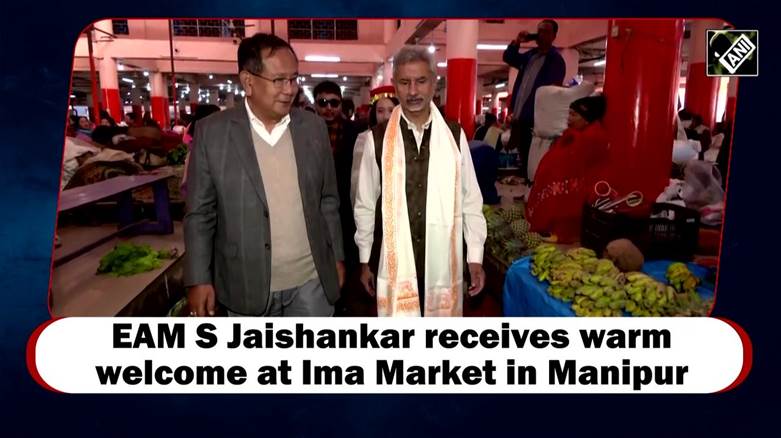Description

Copyright infringement not intended
About
- The Union External Affairs Minister S Jaishankar visited the Ima market in Manipur.
- He called the market a “great example of Nari shakti (women’s power) powering economic growth”.
- Ima market or Mothers’ Market, is an all-women market, it is said to be the largest such type of shopping complex in Asia.
- It is a unique all-women’s market, having more than 3,000 “Imas” or mothers who run the stalls, it is divided into two sections on either side of the road.
- Vegetables, fruits, fish and household groceries are sold on one side.
- Handlooms and household tools on the other.
- Male vendors and shopkeepers are banned here. In 2018, the state government of Manipur announced that legal action would be taken if any male vendor was found selling goods at the market under the Manipur Municipalities Act, 2004.
History of the Market
- The Ima Market is a centuries-old market system and has its origins in “Lallup Kaba”, an ancient bonded labour system.
- Under the system, Meitei tribe men had to compulsorily serve some time working in the military and on other civil projects, keeping them away from home.
- The women were left to manage on their own, and they developed a market system which is today known as “Ima Keithel”.
- According to R Brown, author of ‘Statistical Account of the Native State of Manipur, and the Hill Territory Under its Rule’ (1870), “The system is based on the belief that every male between the ages of 17 and 60 must provide his services to the state, without remuneration, for a specific number of days each year.
- Women were exempt from this.
- The British government had tried to interfere with the functioning of the Ima market but they faced stiff resistance from the women.

Meitei people
- The Meitei people are the dominant ethnic group in Manipur. The Meitei ethnic group represents about 53% of Manipur's population.
- They speak the Meitei language (officially called Manipuri), which is one of the 22 official languages under the 8th schedule of the Indian Constitution.
- It is the sole official language of Manipur.
- The Meiteis primarily settled in Manipur, though a sizable population has settled in Assam, Tripura, Nagaland, Meghalaya, and Mizoram.
- There is also a notable presence of Meitei in the neighbouring countries of Myanmar and Bangladesh.
- Most of the rich culture of Manipur can be credited to the Meiteis.
- The famous Manipuri dance form had its roots in the Lai Haraoba dance form.
- The Manipuri martial art ‘Thang-ta’ is a combative sport which had its origin in the Meitei knights during the king's rule. It involves various fighting techniques with swords and spears.
- According to the 2011 census, Meiteis follow only two religions, with the majority of Meiteis practising variants of Hinduism. Around 16% of Meiteis traditionally believe in the Sanamahi religion named after the god Sanamahi. Meiteis follow both Hinduism as well as Sanamahi religious traditions and rituals.
- The Meitei are mainly agriculturists, rice is their main staple crop. However, they also grow mangoes, lemons, pineapples, oranges, guavas, and other fruits.
- Fishing is also common among the Meitei that can either be a profession or a hobby.
- Women tend to dominate the local markets as sellers of food items, textiles, and traditional clothing.
- Traditional Meitei sports
- Sagol Kangjei: It is the earliest form of modern-day Polo which traces its origin to Manipur.
- Mukna Kang-jei: It is a form of Meitei Wrestling. It is considered to be the most masculine form of sport.
- Huyen langlon: It is a martial art from Manipur.
- Khong kangjei: It is a form of Meitei Hockey.
- Yubi lakpi: It is a traditional full-contact game played by Meiteis using a coconut, which has some notable similarities to rugby.

https://indianexpress.com/article/explained/what-is-imphals-ima-market-which-minister-jaishankar-called-a-great-example-of-nari-shakti-8293307/
https://t.me/+hJqMV1O0se03Njk9













